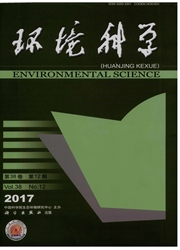

 中文摘要:
中文摘要:
在离体培养条件下,研究了铜镉胁迫对2种外生菌根真菌美味牛肝菌(Boletus edulis)和铆钉菇(Gomphidius viscidus)生长状况,培养环境pH值和细胞壁离子交换量的影响.结果表明,以对照相比,铜镉处理抑制了菌根真菌的生物量积累.通过半致死浓度评价2种菌根真菌耐受性发现,铆钉菇的Cu耐受性强于美味牛肝菌,而Cd耐受性弱于美味牛肝菌.菌根真菌培养后,基质pH降低与真菌生物量有关.铜镉处理下菌根真菌单位生物量下降的pH单位大于对照,说明菌根真菌在重金属胁迫下能通过调节自身pH环境缓解压力.铆钉菇的离子交换量在780~1800μmol·g^-1之间,并随重金属处理浓度的增加而增加;美味牛肝菌的离子交换量在500~750μmol·g^-1之间,并随重金属处理浓度的增加而减少.
 英文摘要:
英文摘要:
Ectomycorrhizal fungus has the ability to enhance the growth of higher plants in the contaminated area,especially ruined by heavy metals. And much attention was focused on how the fungus could enhance the resistance of higher plants. We focused on the resistance of ectomycorrhizal fungus in vitro to heavy metals. In the first experiment, the mycelium biomasses of two ectomycorhizal funguses growing in the Kottke media treated with different concentrations of Cu and Cd were measured after growth as well as the pH value of the medium. The results indicated that heavy metals could reduce the biomasses of the two funguses. Gomplhidius viscidus has higher tolerance to Cu but less Cd than that of Boletus edulis. With development of fungal mycila, the pH value of medium dropped significantly,and this effect might play an important role in enhancing its tolerance. In addition,the higher pH value change per biomass indicated that the fungus treated with heavy metals had the ability to adjust environment of pH more significantly. In the second experiment, the cation exchange capacity (CEC) of the cell walls of the fungus treated with heavy metals was measured according to Marschner's. The results indicated that with the increasing of the concentrations of Cu or Cd, the CEC of Gomphidius viscidus increased, but the CEC of Boletus edulis dropped.
 同期刊论文项目
同期刊论文项目
 同项目期刊论文
同项目期刊论文
 期刊信息
期刊信息
